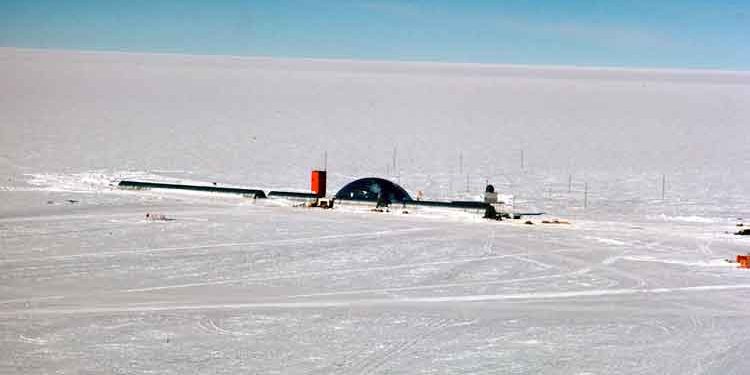Antarctica, often celebrated as a pristine land dedicated to peace and science, also has a history filled with controversy. From territorial disputes to environmental concerns, the frozen continent has been at the center of geopolitical tensions and ethical debates. This history highlights the complexity of managing one of the world’s last frontiers. Read more here about the controversial history of Antarctica.
Early Exploration and Conflicting Claims
The exploration of Antarctica began in earnest during the early 19th century. European nations, including Britain, France, and Russia, sought to map and claim parts of the icy continent. These efforts laid the groundwork for competing territorial claims.
In the early 20th century, countries such as Norway, Argentina, Chile, and Australia formalized their claims. These territories often overlapped, leading to diplomatic tensions. For example, Argentina, Chile, and the United Kingdom all claimed the same portion of the Antarctic Peninsula. The disputes highlighted the challenges of defining sovereignty in a remote and uninhabited region.
The Role of the Antarctic Treaty
The signing of the Antarctic Treaty in 1959 marked a turning point in the continent’s history. The treaty suspended territorial claims and established Antarctica as a zone of peace and scientific collaboration. It prohibited military activities, nuclear testing, and mineral exploitation while encouraging international cooperation.
While the treaty succeeded in reducing immediate tensions, it did not resolve the underlying disputes. Territorial claims remain dormant but unresolved, with seven countries maintaining their assertions. The treaty’s success depends on continued adherence and consensus among its signatories.
Exploitation of Resources: A Contested Issue
Antarctica’s vast resources have been a source of contention. The continent is believed to hold significant reserves of oil, gas, and minerals beneath its ice sheets. However, the Antarctic Treaty’s Protocol on Environmental Protection prohibits mineral extraction, prioritizing conservation.
Despite this prohibition, some nations have shown interest in revisiting the resource question. As global demand for energy and minerals grows, the potential exploitation of Antarctica’s resources remains a contentious issue. Environmentalists warn that such activities could have catastrophic effects on the fragile ecosystem.
The Impact of Whaling and Fishing
The Southern Ocean surrounding Antarctica has long been a site of commercial exploitation. Whaling, once a thriving industry, decimated populations of whales in the region. Countries such as Japan and Norway continue to conduct whaling under scientific pretexts, sparking international criticism.
Fishing, particularly for krill, has also raised concerns. Krill forms the foundation of the Antarctic food chain, supporting species like penguins, seals, and whales. Overfishing poses a significant threat to the region’s biodiversity. Efforts to regulate fishing through the Commission for the Conservation of Antarctic Marine Living Resources (CCAMLR) face challenges due to competing interests.
Climate Change: A Growing Source of Controversy
Antarctica’s role in the global climate system makes it a focal point for debates about climate change. The continent’s ice sheets are melting at an alarming rate, contributing to sea-level rise. This has far-reaching implications for coastal communities worldwide.
The controversy lies in the response to these changes. While scientific research highlights the urgency of reducing greenhouse gas emissions, political and economic interests often slow progress. Some countries prioritize economic growth over environmental protection, exacerbating the crisis.
Tourism and Human Impact
Antarctic tourism has grown significantly in recent decades. Each year, thousands of visitors travel to the continent to experience its unique landscapes and wildlife. While tourism raises awareness about Antarctica’s importance, it also poses risks.
Critics argue that human activity disrupts fragile ecosystems and increases the risk of pollution. Strict regulations govern Antarctic tourism, but enforcement can be challenging. Balancing tourism with conservation remains a contentious issue.
The Role of Geopolitics
Antarctica’s strategic location and resources make it a subject of geopolitical interest. Countries such as China and Russia have increased their presence in the region, raising questions about their long-term intentions. These nations’ investments in research stations and infrastructure are seen by some as efforts to strengthen future claims.
Geopolitical tensions also affect the management of Antarctica’s resources and governance. The consensus-based decision-making process of the Antarctic Treaty System can be undermined by competing national interests. Ensuring that Antarctica remains a zone of peace requires ongoing diplomatic efforts.
The Future of Antarctica
Antarctica’s future is uncertain, shaped by competing interests and environmental challenges. The continent’s unique status as a shared space for science and conservation faces pressure from economic and political forces.
Key issues include the renewal of the Antarctic Treaty’s environmental provisions, set to be reviewed in 2048. The potential exploitation of resources, the impact of climate change, and the management of tourism will all shape Antarctica’s future. Maintaining the continent’s pristine environment will require strong international cooperation and adherence to existing agreements.
Conclusion
The controversial history of Antarctica reflects the complexities of managing a global commons. From territorial disputes to environmental concerns, the continent’s past and present highlight the challenges of balancing competing interests. The Antarctic Treaty remains a cornerstone of peace and cooperation, but its success depends on continued commitment from the international community.
As humanity grapples with global challenges like climate change, Antarctica serves as a reminder of the need for collective action. Preserving this unique region for future generations will require vigilance, innovation, and a shared sense of responsibility. Read more here about the controversial history of Antarctica and other relevant topics on Antarctica’s blog by Daniel River.






